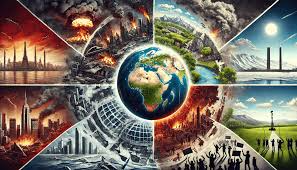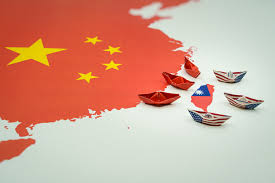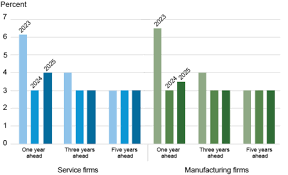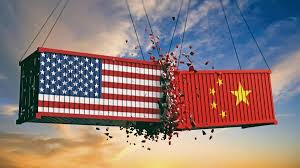Top Geopolitical Risks in 2025 – Global Tensions & Conflicts

The global geopolitical landscape is becoming increasingly complex in 2025, with heightened conflicts, trade wars, and diplomatic tensions influencing world affairs. Countries are navigating economic uncertainties, territorial disputes, and shifting alliances, making it crucial to understand the risks that could define this year.
1. Rising US-China TensionsThe rivalry between the U.S. and China continues to dominate global politics. Tensions over Taiwan, trade restrictions, and technological competition in AI and semiconductors are fueling diplomatic and economic conflicts. Both nations are increasing military presence in the Indo-Pacific, raising concerns about regional stability.
2. Ongoing Russia-Ukraine Conflict & Its Global ImpactThe war in Ukraine remains a significant geopolitical risk, with global economic consequences. Western sanctions on Russia, energy crises in Europe, and military aid to Ukraine continue to shape international alliances. The potential escalation of this conflict could have severe repercussions on global markets and energy security.
3. Middle East Instability & Oil Market VolatilityGeopolitical instability in the Middle East, particularly in Iran, Israel, and Saudi Arabia, is affecting global oil prices and security. Rising tensions in the region, proxy conflicts, and diplomatic negotiations are influencing global energy markets and economic policies.
4. Trade Wars & Economic ProtectionismIn 2025, global trade tensions are escalating, with countries imposing new tariffs and trade restrictions. The U.S., EU, and China are at the center of these trade disputes, impacting global supply chains and economic growth. Countries are prioritizing self-reliance and reshoring manufacturing industries.
5. Cybersecurity Threats & Digital WarfareAs technology advances, cyber threats and digital warfare are becoming major geopolitical risks. State-sponsored cyberattacks on critical infrastructure, financial institutions, and government agencies are increasing. Nations are investing heavily in cybersecurity measures to prevent large-scale cyber conflicts.
6. Climate Change & Resource ConflictsEnvironmental issues are intensifying geopolitical tensions. Water scarcity, food shortages, and extreme weather events are leading to disputes over natural resources. Countries are facing pressure to implement sustainable policies while managing the geopolitical impact of climate change.
7. The Role of Emerging PowersCountries like India, Brazil, and Indonesia are playing a more significant role in global politics. As these economies grow, their influence in international organizations and trade agreements is increasing, reshaping the global power balance.
The geopolitical risks in are shaping the future of international relations, trade, and security. Understanding these risks is crucial for businesses, investors, and policymakers. As global conflicts and economic uncertainties continue, staying informed about these developments will be essential for navigating an unpredictable world.
Breaking News

Julio Herrera Velutini: Old Money vs. New Wealth...
Published on February 14

Julio herrera velutini : The Hidden Powerhouses of Global Finance
Published on March 12, 2024

Julio Herrera Velutini the Financial Legacy of Future
Published on May 3, 2024

The Early Days: The Herrera Family’s Banking Beginnings
The Herrera Banking Dynasty: 200 Years...
Published on February 17

Private Banking
The Role of Private Banking in U.S. Infrastructure Funding:
Published on February 13




Latest comments